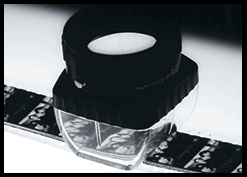GME DVD Distribution – Philippe Garrel and Adolpho Arrietta Films, Now Available on DVD for North American Institutional Sales
/Gartenberg Media Enterprises is pleased to present 2 DVD editions (published by Re:Voir) of films by Philippe Garrel and Adolpho Arrietta, both key figures of the independent filmmaking movement that emerged in France and Spain in the 1960s.
◊
Philippe Garrel was influenced by the New Wave films of Truffaut and Godard, and made his first film in 1964 at age 16. During the past half century, his talents have extended to all aspects of the filmmaking practice, including director, cinematographer, screenwriter, editor, producer and actor. Garrel has created cutting-edge films through combining distinctive visual strategies with the actors’ compelling, stylized performances.
“For all their superficial similarities, Garrel’s underground films are the opposite of Warhol’s in several key ways. Most evidently, Warhol’s cool distance and authorial strategy of absence couldn’t be more different from Garrel’s anguished involvement in his films, especially the essentially non-narrative works of the ‘70s where the director’s gaze and its relationship with its subject often becomes the centre of drama. Warhol prophetically worked towards a system of casually disposable imagery and celebrity."
– Maximilian Le Cain, “Cinema Reborn”
In addition to GME’s previous release of Garrel’s LE REVELATEUR (1968) and LE LIT DE LA VIERGE (1969), we now offer his 1974 experimental narrative silent-film meditation on the image of the fallen 40-year old star of Godard’s BREATHLESS, Jean Seberg.
“The idea was to make a film out of the outtakes of a film that never existed in the first place. So I conceived LES HAUTES SOLITUDES as outtakes, a very raw texture on her face. Her agent, her friends, everybody thought I wasn’t serious in my endeavour. I arrived every day at Seberg’s apartment with my camera and filmed her on the balcony, close to the window, for hours, with no role and no script. No-one thought that it was a real film, but she was very independent and didn’t care about this. I consider LES HAUTES SOLITUDES as much a Seberg film as mine.”
– Philippe Garrel
Cinema Ritrovato 2015 DVD Awards
Best Rediscovery of a Foreign Film
◊
No. 25 on the list of the 100 most beautiful French films of all time.
– Les InRocks Magazine
“A young Spaniard outside of every system, of every clique, of every influence, records on 16mm (since cinema for him cannot be just a profession) the quiet heartbreaking delusions that express, better than if he had prepared indictments, the state of mind of a generation for whom poetry today is the only refuge and the only feasible fight...”
– Jean-André Fieschi, Cahiers du Cinéma (1967)
Adolpho Arrietta grew up in Spain during the Franco regime, where his childhood interests in drawing and painting soon turned to amateur filmmaking. He bought a 16mm camera in a flea market and began making diary films. He later both organized screenings and attended Ciné-Clubs (clandestine activities under the Franco regime), where he saw films of Cocteau, Vigo, Genet, and others.
His first three films, made while Arrietta was in his twenties, are presented together in this DVD edition entitled “The Angel Trilogy,” with an accompanying booklet that provides incisive background about the filmmaker and these films – EL CRIMEN DE LA PIRINDOLA (1965), LA IMITACION DEL ANGEL (1966), and JOUET CRIMINEL (1969). Filmed with a grainy black-and-white texture, they star youthful Javier Grandès, Arrietta’s alter-ego. Each film alternates between the terrestrial world and an oneiric vision (replete with the main protagonist wearing angel’s wings); he inhabits a world of waking dreams.
The first two films, EL CRIMEN DE LA PIRINDOLA and LA IMITACION DEL ANGEL take place on the streets and in Madrid’s apartment buildings. At the end of the latter film, the protagonist departs for Paris by train, escaping from the oppression of Franco’s Spain to the City of Light (just as the filmmaker did in real life).
Once in France, Arrietta (and Grandès) encountered Cocteau’s favorite protagonist-hero, Jean Marais, who stars in JOUET CRIMINEL along with Florence Delay (the star of Bresson’s LE PROCÈS DE JEANNE D’ARC, 1962). Lotte Eisner, the esteemed critic, historian, and grande dame of the Cinémathéque Française wrote about JOUET CRIMINEL that “this film was made with the stuff of dreams.”
Additional Titles of Related Interest From GME:









